Solar Power – it’s more fun! Is it?
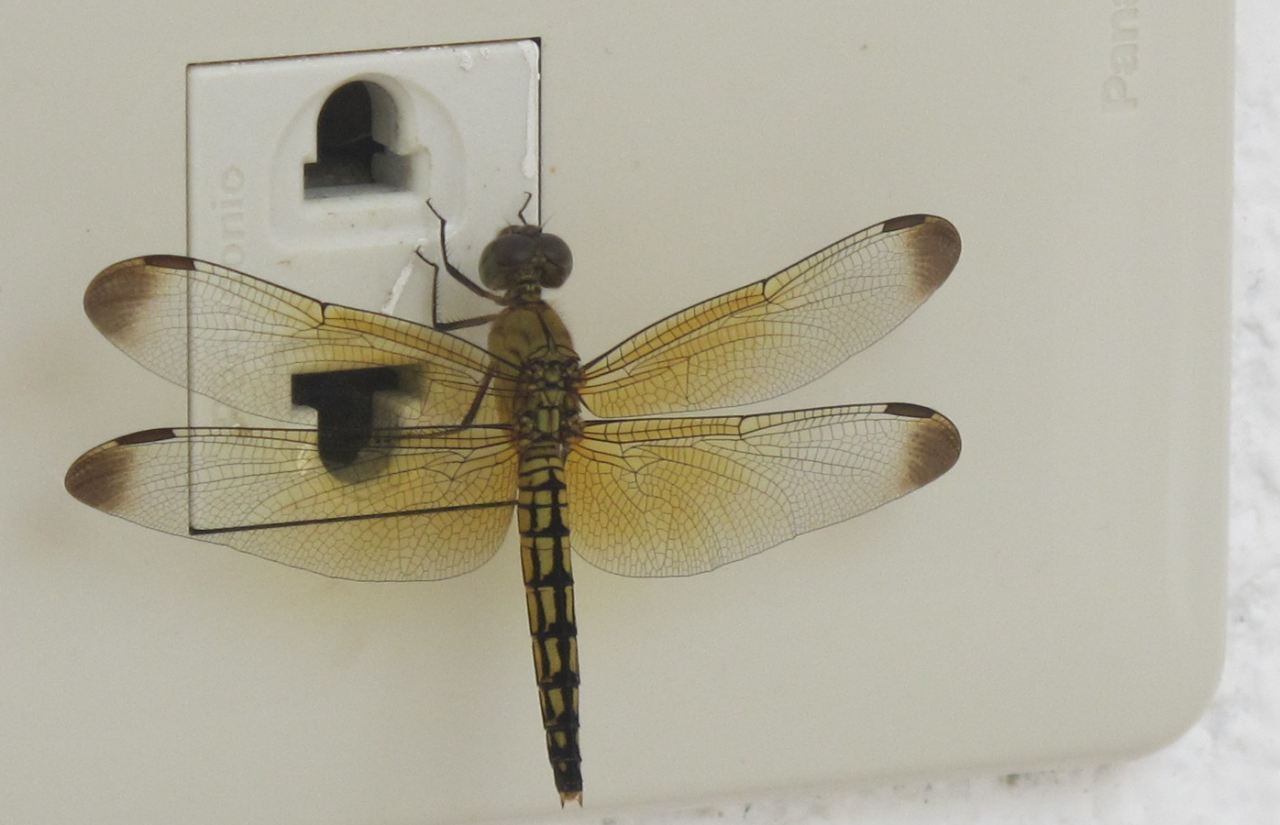
You may have discovered that Silent Gardens is more and more using solar power.
Today we discovered a dragonfly getting energy on one of our solar outlets …
… but there is a big problem with solar energy – STORAGE!
Our local electricity company, CAMELCO, does not want us to feed our daily energy surplus into their network. Although they are obliged by Republic Act 9513, they do not or do not want to understand.
Anyway, we are storing our surplus in batteries and using it up in the evening. Unfortunately there is a battery problem. Currently we are using 150 Ah car batteries. They are rather cheap at USD 120 a piece. But any solar specialist tells you that they aren’t a good solution. Car batteries are made for instant high-power when starting the engine. They are not made for constant low power consumption. Car batteries’ life is much reduced when the battery is frequently discharged to low levels.
Battery manufacturers also produce special deep-cycle batteries for solar energy. There are 3 differences between car and solar batteries:
- The lead plates (grids) of solar batteries are thicker
- The cell-separating membranes of solar batteries are stronger
- The retail price of solar batteries is two to three times higher
[GARD]
We wonder about this big retail price difference.
- The price of lead is about USD 2.09 per kilogram (see chart below). Even thicker plates in solar batteries will not need more than 1 or 2 kilograms of additional lead. Additional costs are maybe USD 4.00 by battery
- The thicker membranes separating the battery’s cells may increase production cost by USD 1.00
- Transportation cost of heavier batteries may increase by USD 1.00 per battery from China to the Philippines.
When you check battery prices on the WWW (e.g. alibaba.com) you find that Chinese manufacturers like Zhuhai Seawill Technology Ltd. or Guangzhou Tongli Storage Battery Co., Ltd. offer 150 Ah solar batteries from USD 20 to 100, depending on the quantity you order.
We are now thinking about ordering a thousand solar panels, a thousand batteries and inverters, and several thousand LED bulbs. A leasing scenario is being calculated. If we understand right what is written in R.A. 9513, importation of renewable energy equipment is exempt from importation tax and VAT.
[GARD]

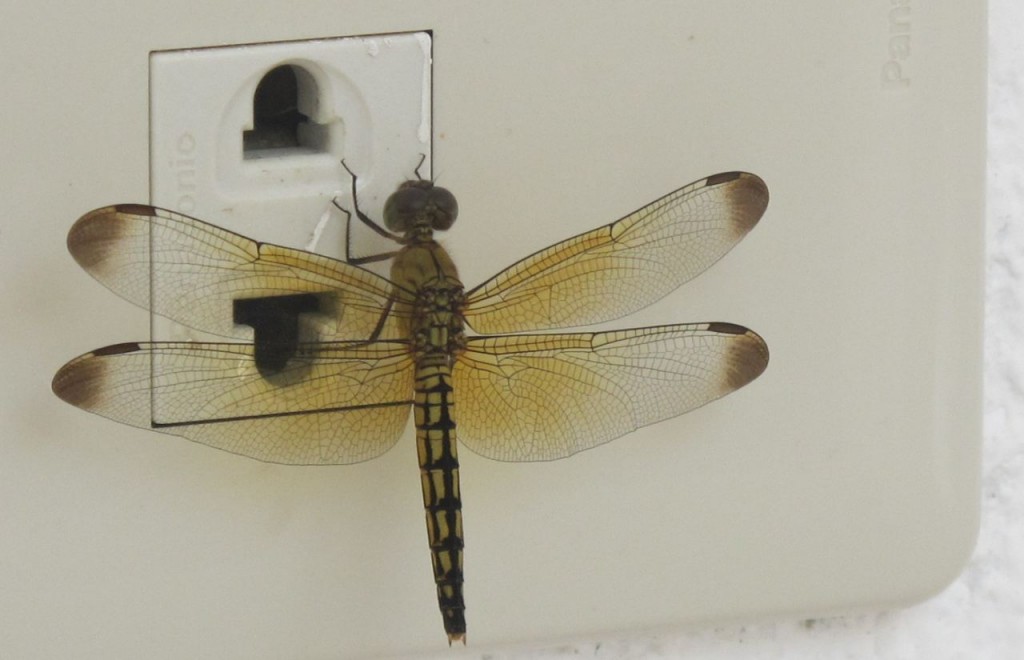
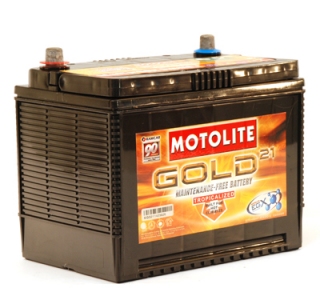
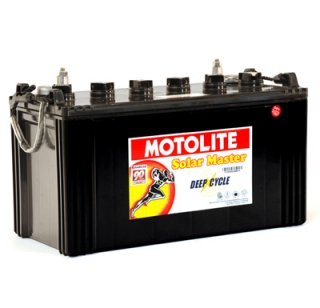
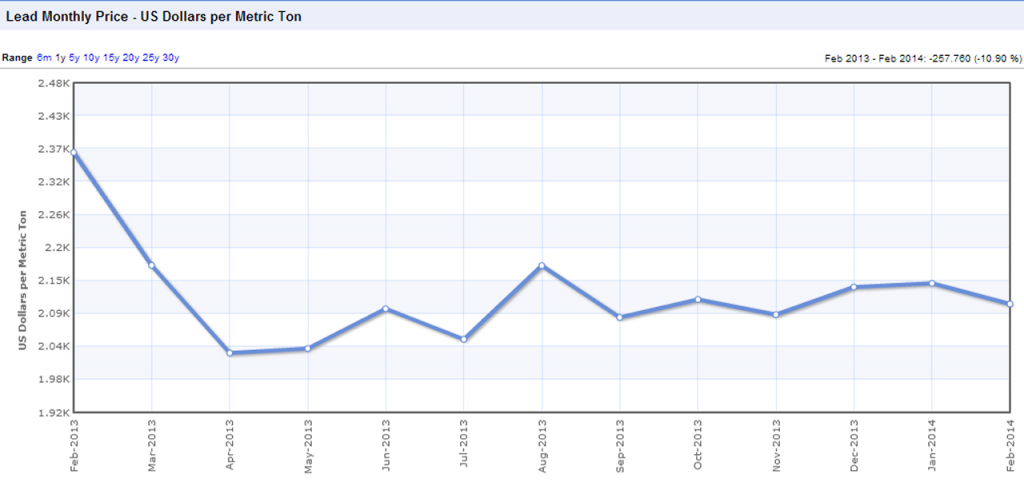


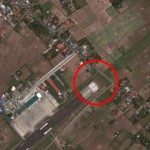



your right from what you read… however, you have to be approved first by the DOE to be able to import tax free and the equipment you import has to be used at your business premises (eg, your power plant). There seems to be no provision for it to be leased to other premises.
The reason I post this is I had the same idea in the NCR area and I was told it would not ‘meet the requirements’.
However, the import tax on solar equipment is only 5%, and you can offset the VAT against what you receive in payments in your leasing agreements. It’s a great idea if you have the capital to buy that volume of panels/batteries in the first place…
Uhm and why is that CAMELCO wont abide with RA9513? That is one reason as well for consumers to opt for the use of solar panels.
Sorry ice, you are sending automated comments to blogs. Read again your comment and you will discover that your two sentences are contradicting. We removed your advertisement although we promote solar energy. get in contact with us.
We are now thinking about ordering a thousand solar panels, a thousand batteries and inverters, and several thousand LED bulbs. A leasing scenario is being calculated. If we understand right what is written in R.A. 9513, importation of renewable energy equipment is exempt from importation tax and VAT.
I would just like to quote, careful too, ive just found out that BOC is still charging much for importation of any products or materials for the use of Solar Panels. The quotation of 1 20ft container was charged for P600,000. So i doubt that it will be tax and vat exempt. FYI
I’m just starting in this industry so i hope you’ll bare with me. What were the equipments inside the 20ft container that costs P600,000? it is from China-Mla?
The big problem is Philippines customs. Depending on the officer in charge to control your container, you either say thank you with a bright smile or you pay PHP 600’000.
And frankly, start an administrative inquiry here in RP is only possible for big companies with their own legal department.